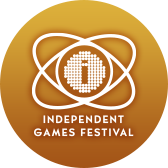GDC China Reveals Cloud Gaming, Smurfs, KingsIsle Sessions
This week, GDC China has debuted new lectures featuring Microsoft on the present and future of cloud gaming, a look at Ubisoft's Smurfs & Co Facebook game, and Wizard101 developer KingsIsle on the ins and outs of RPG math.
Taking place November 12-14 at the Shanghai Exhibition Center in Shanghai, China, the event will once again serve as the premier game industry event in China, bringing together influential developers from around the world to share ideas, network, and inspire each other to further the game industry in this region.
This year, the show's Main Conference will feature three primary tracks, covering Online Game Development & Business, Global Game Development, and Social Games, and two Summits on Indie Games and Mobile Games, respectively.
Here are the latest talks to be revealed for the show:
- As part of the Global Game Development track, Microsoft's Brian price will host "Gaming and the Cloud: Present and the Future." Here, he will explain how game developers could benefit from using a cloud-based service, detailing cloud gaming's current capabilities and where he expects the technology to go in the years to come.
- In the Social Games track, Richard Tsao of Ubisoft Chengdu will examine the publisher's popular Facebook game based on the classic Smurfs franchise. In "The Smurfs & Co - How to Develop a Successful Facebook Game in China," Tsao will look back on the game's development, detailing the factors that helped the title become one of Ubisoft's most successful social ventures.
- Finally, Sara Jensen Schubert, design lead at Wizard 101 developer KingsIsle Entertainment, will look dive into role-playing statistics in "Fundamental Multiplayer RPG Math." In this lecture, Schubert will explain how to draft the essential framework for basic RPG systems, from experience curves to character attributes, emphasizing how data-driven spreadsheets can streamline the ways in which these systems take shape.











